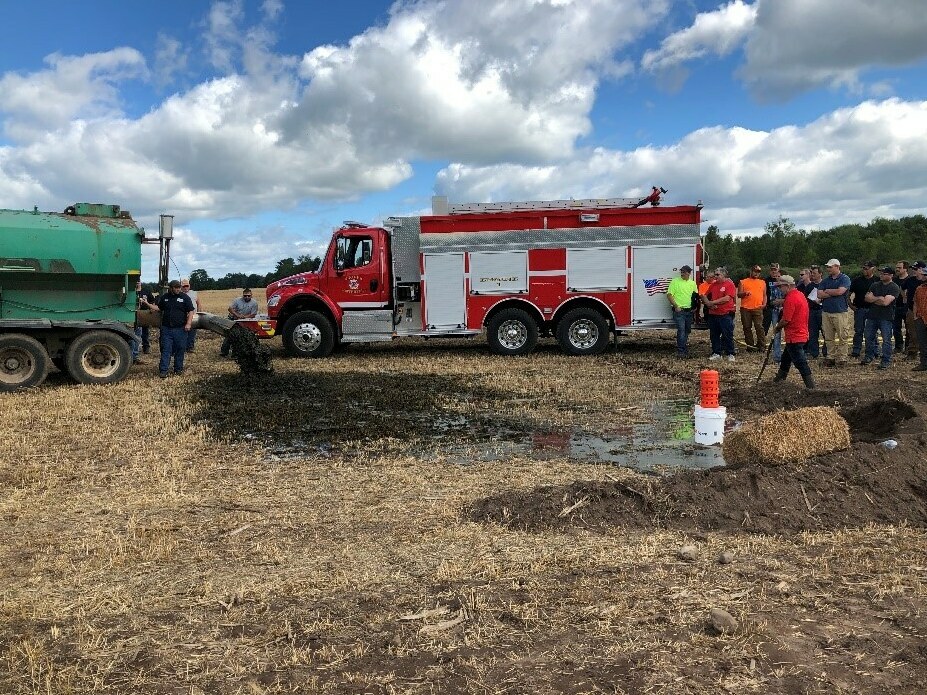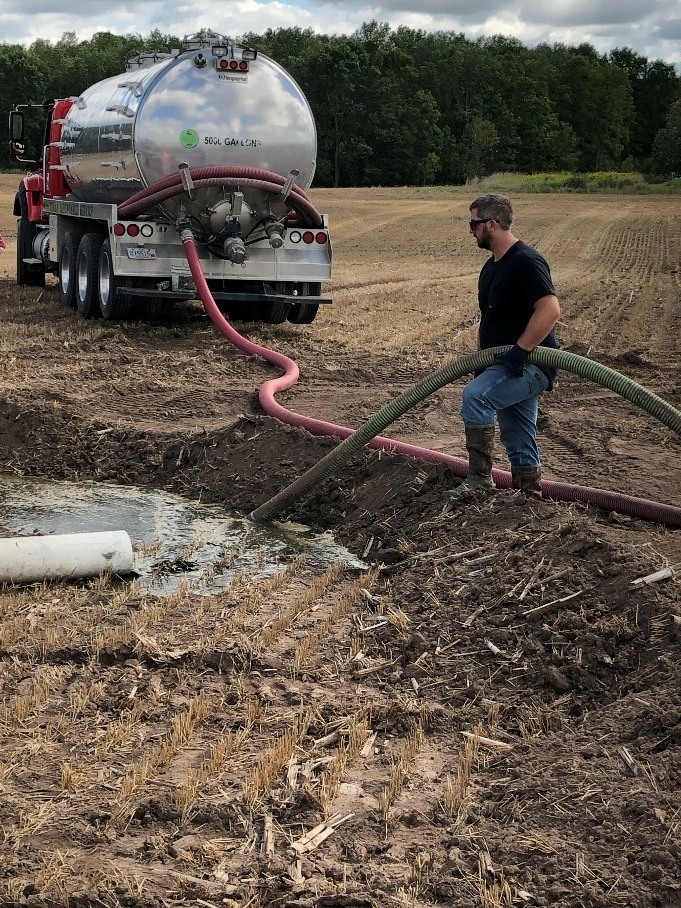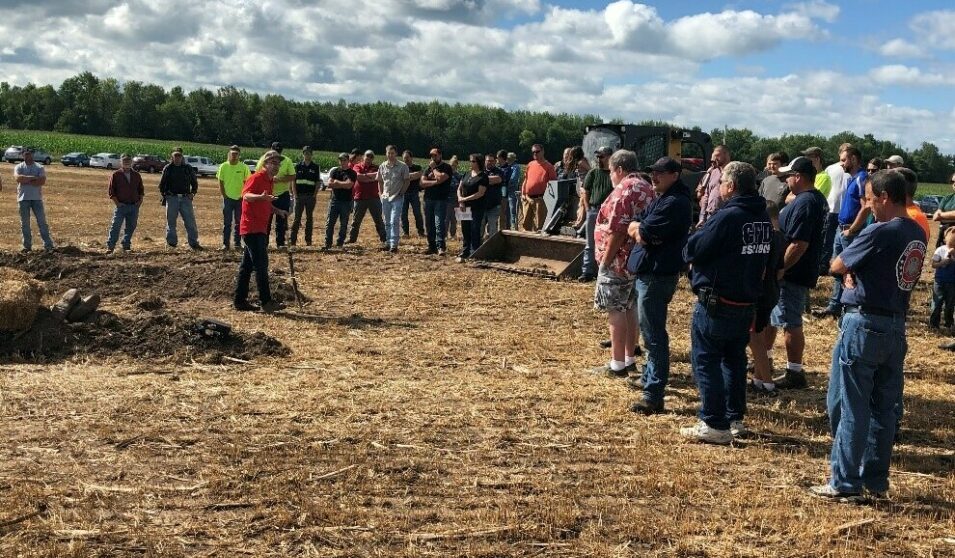What brings together farmers, fire fighters, septic companies, custom manure haulers, and government officials? If you guessed a manure spill or training for a manure spill, you are correct.
On August 30th, the UW Madison-Division of Extension in partnership with Marinette and Oconto County Conservation Departments, Wisconsin DNR, NWTC, and Noll Farms set up a live-action manure spill demonstration at a farm field in Grover. About 80 people, ranging from volunteer firefighters/first responders, farmers, septic employees, custom manure haulers to DNR and county employees, came to participate in the small-scale demonstration. Using a constructed mock ditch to represent a road-side ditch and culvert, the event organizers demonstrated what occurs during a manure spill, how to properly report it, and the procedures and various methods that are used to reduce the impact of spilled manure.

When a spill occurs, the first step is to ensure the safety of anyone involved in the incident. Stopping the source is the next step – shut the valve, clamp the hose. Once the source is controlled, block the manure path to minimize the manure flow into nearby ditches and/or streams. This can be done by creating a dam with soil, or if in a field, using tillage to roughen the ground to slow the flow. Next a vacuum truck is called in to suck up the manure, then a firetruck rinses the spilled area with water sending as much of the remaining manure as possible to where the vacuum truck can continue to remove it. The manure can then be applied to a field as planned according to the farm’s nutrient management plan or be returned to a manure storage facility. With this demonstration, attendees were able to see how quickly a manure spill can occur and spread, as well as how to take proactive steps to reduce impacts of the spill.

The DNR explained that it is not illegal to have a spill, but spills must be reported through Wisconsin’s 24-Hour Spills Emergency Hotline: 1-800-943-0003. We encourage you to reach out to your local conservation department with any questions. The DNR and county conservation employees can assist in both determining the best cleanup methods and in documenting the cleanup effort, as well as helping you to prepare a spill response plan so you are ready when the unexpected occurs.
| Photo Credits: Boulin Beck of the Marinette County Land and Water Conservation Division

